
Paper Mario: The Thousand-Year Door Review
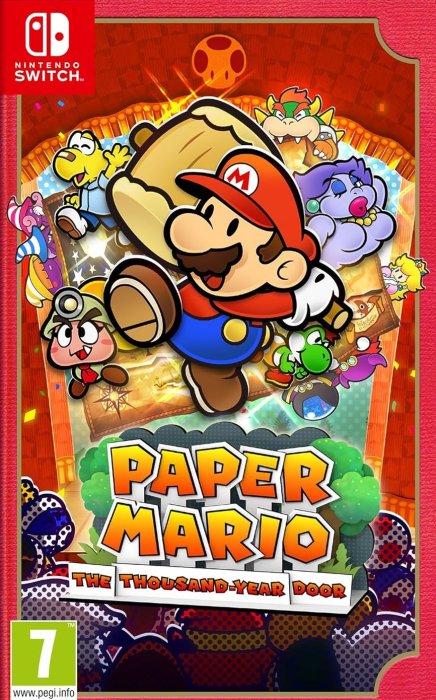
Pros
- Delightful, colorful visual style
- A warm and wonderful cast of characters
- Sharp, highly comedic writing
- Typically cheerful Nintendo soundtrack
- A great RPG entry point for youngsters
Cons
- Moments of eye-rolling backtracking
- Lacks challenge for veteran players
- Visual splendor comes at cost of framerate
Despite years upon years of ill-advised dusk-‘til-dawn sessions, I haven’t fallen asleep while playing a video game in decades. If I recall correctly, the last time that this happened was back in 1999, when I crashed out on my birthday while playing Capcom’s just-released Dino Crisis - waking up, controller in hand, sun rising, and Regina staring at me accusingly with her pixelated features.
I mean, it was my birthday and it had been a long night.
However, during my first play session with Nintendo’s Paper Mario: The Thousand-Year Door, I again found myself in slumbersville. Now, while this* can* be read as a huge negative, (I’m pretty sure “Make Player Fall Asleep” isn’t top of most developer goals), it’s ironically an actual positive. Y’see, I fell asleep because, for the first time in some time, I was genuinely relaxed, comfortable, and content, my myriad woes momentarily forgotten. This is testament to the magic of Nintendo’s incomparable style, a style capable of whisking the player away from their troubles and placing them in a fantastical world of pure joy, warmth, humor, and adventure. Worlds where heroes are heroes, villains are merely foolish at best and, ultimately, things will eventually work out for the better for most parties.
Answering an endless clamor from a die-hard fanbase, Paper Mario: The Thousand-Year Door has finally been remade for Nintendo Switch - looking to be one of the last major releases for the platform’s twilight years. And, unsurprisingly, the charm of the GameCube classic has not dulled with age. TTYD’s style, character, and cheerful spirit are just as capable of enchanting players today as it was some two decades prior.
Just… don’t play it while operating heavy machinery. Just in case.
The wait is finally over, as the beloved GameCube classic returns!
Once again developed by Nintendo affiliate Intelligent Systems, Paper Mario: The Thousand-Year Door is a remake of the studio’s highly acclaimed 2004 GameCube release. Offered a fresh coat of visual gloss, a recomposed soundtrack, an updated script, and various elements of gameplay modernization, TTYD hopes to offer fans of the original adventure an exciting and revitalized experience, while those coming to the game for the first time will be treated to a sublimely polished variant of its beloved GameCube brethren.
Our tale begins with Princess Peach arriving at the downtrodden town of Rogueport, only seconds before being swiftly abducted by a mysterious, imbecilic army known as “The X-Nauts”. Having learned of his dear monarch’s disappearance, our favorite head-hopping hero makes his way to Rogueport, where he will become embroiled in a world-changing quest to locate the seven “Crystal Stars” - mythic jewels said to open a sealed door guarding a legendary treasure.
What exactly this treasure is, why the X-Nauts are chasing it, where these stars are located, and just how Princess Peach fits into this endeavor will be revealed in due course. What lies ahead is a 30+ hour adventure that sees Mario travel far and wide, meet a variety of new friends and allies, battle an army of no-good evildoers, and hopefully put the world to rights - one fold at a time.
Oh, and Bowser might put a scaly elbow in the mix too.
(1 of 2) Paper Mario’s flat nature allows him to fold into items such as a plane
Paper Mario’s flat nature allows him to fold into items such as a plane (left), and a boat. Hiya Georgie. (right)
Paper Mario: The Thousand-Year Door blends world exploration, platforming elements, and turn-based combat to create an epic, character-driven adventure wherein Mario journeys from the hub world of Rogueport to a variety of unique and extraordinary locations. Each new area is given form through the game’s distinct “papercraft” style, sporting diorama-like locales, “flat” character models, and paper-based puzzling. These creative effects give the adventure its cute storybook aesthetic, which fits snugly alongside the fairytale nature of its narrative. Thanks to the extra oomph afforded by the Switch, the GameCube visuals have been faithfully recrafted with modern technology, allowing for improved effects, enhanced textures, and overall shine. This visual splendor does come at a cost, however, as the remake runs at a framerate of 30 FPS - half that of its twenty-year-old predecessor. While frustrating, this does not put any weight on the fact that TTYD looks and plays splendidly.
It often seems redundant to critique the sound design of a Nintendo release, such is the instantly recognizable and consistent style of the studio’s games. The Thousand-Year Door features a typically spiffy score to underline both overworld exploration as well as the bouts of fisticuffs. TTYD‘s recomposed soundtrack adds sublime atmosphere to each locale - whether the spooky, theremin-driven tones of Creepy Steeple, the meat-headed cock-rock of a wrestling arena, or the pompous, adventurous themes that accompany a journey across the sea. Punctuating these tunes are a selection of neat musical references, such as variants on classic Super Mario tunes, as well as comedic Easter Eggs - such as Mario’s ring tone. Eschewing voice acting, the cast chatter in Nintendo’s trademark jibber-jabber sound effects which, given the strength of the dialogue itself, works just fine. Oh, and GameCube loyalists will be pleased to hear that one pickup allows the player to switch out the recomposed score for the 2004 original. Neat.
The beating heart of The Thousand-Year Door lies in its excellent dialogue and top-tier character work, leaning heavily on laugh-out-loud comedy, slick wordplay, and touching moments of sentiment.
When it comes to combat, Mario battles an army of both new and familiar enemies, utilizing his iconic jump skills, a trusty mallet, and items such as Mushrooms, Fire Flowers, and Stars to win the day. As his quests continues, Mario gathers a selection of party members, each of which brings their own unique talents to the battlefield - from the scholarly learnings of the adorable but acerbic Goombella, to the explosive powers of old boy Admiral Bobbery. It is through the combination of his own abilities and the switching out of these party members that Mario can best counter his opponents, be they clans of Boos, Beetles, and Lakitus, or one of the many boss battles that await at the end of each chapter.
The turn-based combat is perfectly fine in both design and execution, but TTYD, like so many modern games, is unbalanced in the player’s favor. For the most part, all of the battles are too easy, and will offer little challenge to dedicated players in general and zero challenge to RPG veterans in particular. This is a shame as, conceptually, the combat houses some great ideas. The use of mini-games to buff attack/defense, the depiction of the fight as a stage show for audience approval, and even a slick “Superguard” (parry) mechanic all add depth to the throwdowns - but Mario and his friends simply have too many tools at their disposal. Between the party’s skills, items, badges, and special moves, our heroes are kitted out for all eventualities, which can make many of the standard encounters simplistic at best and tedious at worst.
All that said, The Thousand-Year Door is a title that, first and foremost, wants the player to enjoy the ride. As denoted by the low difficulty, (and extended sequences that forgo combat entirely), the adventure is the point. TTYD is eager for the player to explore its world, meet its characters, and enjoy its storytelling, and perhaps there was concern that challenging gameplay might roadblock this. The ease of the combat certainly does not ruin the experience, (and is a boon for younger players), but those well-versed in gaming should be aware that while the fights here provide compelling action, they lack distinct challenge.
(1 of 2) Mario’s new pals will help him both in battle
Mario’s new pals will help him both in battle (left), and when solving overworld puzzles (right)
The beating heart of The Thousand-Year Door is its marvelously conceived world and characters. A lengthy adventure, TTYD is forced to open up the lore more than we’d expect from a title in the Super Mario series. This initially appears paradoxical, as TTYD’s huge locations, large cast of characters, and hours upon hours of dialogue seem at odds with the simpler Super Mario universe we recognize. A girl Goomba studying at university to be an archaeologist; a sentient interstellar computer system; a turf war between organized crime syndicates; These all appear to be anachronisms when placed within a franchise that typically focuses on castles, kingdoms, magic mushrooms, fire-breathing turtles, and clockwork bombs.
But this juxtaposition is expertly avoided by Nintendo simply ensuring everything is just so infectiously charming. From its visual style to its environmental design, from its characters to its dialogue, TTYD is just so effortlessly lovable that we welcome every bizarre facet of its world - despite the fact that it contains elements that feel dislocated to the Super Mario Bros., Mario Karts, and Yoshi’s Islands of the past. The writing is key here, and in expanding The Mushroom Kingdom beyond that which we recognize from the NES/SNES classics, Intelligent Systems’ opens the envelope for true “world-building”. This is a Mushroom Kingdom where Bob-ombs can raise families, Koopas can become mayors, Cheep-Cheeps operate as gourmet chefs, and, yes, Goombas can go to university to become archaeologists.
As Mario, Goombella, Koop, and Co. push through each chapter, an epic tale unfolds, with creative twists and turns that see the newfound friends battling pirate ghosts on a desert island, solving mysteries aboard an opulent train, venturing through a haunted village, and even uncovering a conspiracy at a glitzy pro-wrestling promotion. Sure, the weird, shifting nature of the above is a bit messy, but the clever use of recurring characters and throwback jokes - as well as the frequent returns to Rogueport - help to keep these differing locales and events pasted together.
The Thousand-Year Door isn’t perfect, with some flaws in both pacing and storytelling. The pro-wrestling chapter, despite its fun central mystery, is painfully repetitive and in need of an edit. Additionally, while the remake has addressed some of the backtracking complaints aimed at the 2004 release, (additional Warp Pipes have been added to certain maps), there are times when Mario will be sent off in one direction only to immediately find he needs to Return to Sender. These moments of obvious padding are absolute groaners, harming the story’s pace. Fortunately, the overall charm and upbeat spirit of the adventure always wins through, and even when TTYD stumbles, it quickly and effectively gets the player back onside. It is an easy game to forgive, so to speak.
Perhaps The Thousand-Year Door’s greatest achievement is its ability to remain suitable for youngsters, while being sharp and refined enough to appeal equally to older players.
The beating heart of The Thousand-Year Door lies in its excellent dialogue and top-tier character work, leaning heavily on laugh-out-loud comedy, slick wordplay, and touching moments of sentiment. While I found myself smiling and laughing in all the right places, I surprised myself by getting legitimately choked up at even the smallest amount of wistful conversation. Such is my heavy heart.
Mario’s posse of pals are all unique in nature and uniformly endearing, while a huge cast of both familiar and unfamiliar characters are all afforded sharp, witty, and unpatronizing dialogue. Frequently updated conversation and recurring encounters from a plethora of bystanders help the world feel alive, while intermission sequences featuring Princess Peach and Bowser, (both engaged in their own mini-quests), shake up any sense of monotony. Perhaps The Thousand-Year Door’s greatest achievement is its ability to remain suitable for youngsters, while being sharp and refined enough to appeal equally to older players.
It would be remiss not to take a moment to touch upon the tweaking of dialogue as it pertains to Vivian, the brutally bullied spirit of The Shadow Sisters. While Vivian’s dialogue in the GameCube release had been rewritten, retranslated, or removed (dependent on territory), Vivian’s transgender status is validated in this remake. Vivian’s scenario is treated kindly and with class, and while her feud with her mean sister Beldam is just as effective, there is a welcome rewrite to some of the crueler or more ambiguous text. Vivian, like each member of Mario’s party, is a wonderfully sweet character. It’s great to see Nintendo underline her arc.
(1 of 2) Mario’s quest will take him to haunted chapels,
Mario’s quest will take him to haunted chapels, (left), desert islands, wrestling locker rooms, and exotic express trains (right)
More so than any major studio, Nintendo is often thought of as a “timeless” company. That is to say, Nintendo games are frequently depicted as failing to succumb to age, (thematically or technically), as years or even decades pass. This, obviously, is due to the studio’s penchant for classical forms of storytelling, universally appealing visuals, unpretentious audio design, and enduring fantasy worlds. It is why so many Nintendo classics remain as attractive and compelling as they were 10, 20, or even 30 years ago, and it is also why Paper Mario: The Thousand-Year Door is such a prestigious remake.
From its ageless audio/visuals to its affectionate characters, from its witty script to its charming design, TTYD is as enjoyable and attractive as anything that has arrived in the two decades since its initial release. More importantly, it’s a game designed to keep the player smiling - an often neglected goal in the mainstream gaming market. As a bonafide, stat-studying RPG experience, it struggles to meet the bar set by the genre’s more po-faced offerings. But as a cheerful, charismatic, and absorbing adventure title - long on laughs and huge in heart - TTYD is a success, legitimately ranking among our plumber pal’s best adventures.
Paper Mario: The Thousand-Year Door is a sparkling rendition of a beloved classic. Though a distinct lack of challenge and some unnecessary padding hamper the experience, a trove of wonderful characters, spirited worlds, charming dialogue, and memorable encounters fill the heart and rouse the senses, resulting in one of the finest adventures in The Great Gonzalez’s illustrious career.
This review is based on a retail copy of the game purchased by the reviewer.
Know When to Fold Him
Paper Mario: The Thousand-Year Door is a sparkling rendition of a beloved classic. Though a distinct lack of challenge and some unnecessary padding hamper the experience, a trove of wonderful characters, spirited worlds, charming dialogue, and memorable encounters fill the heart and rouse the senses, resulting in one of the finest adventures in The Great Gonzalez’s illustrious career.
Gameplay:
Sound:
Graphics:
Story:
Value Rating:

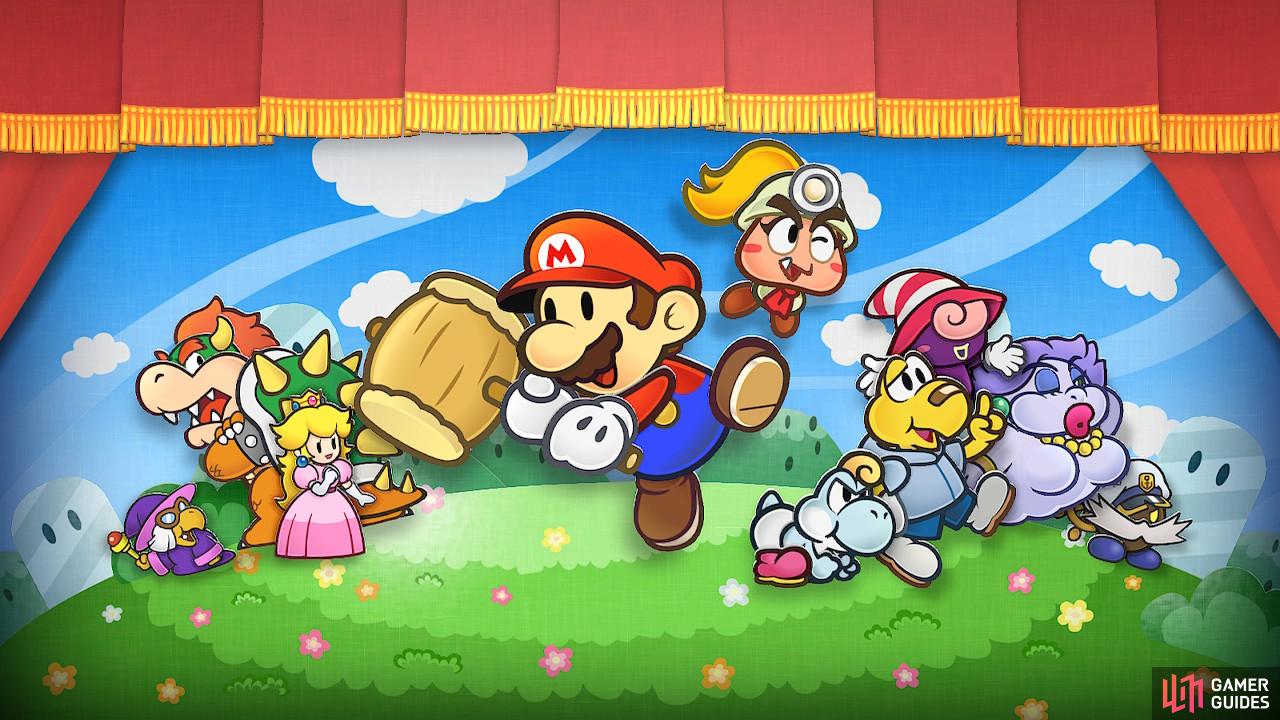
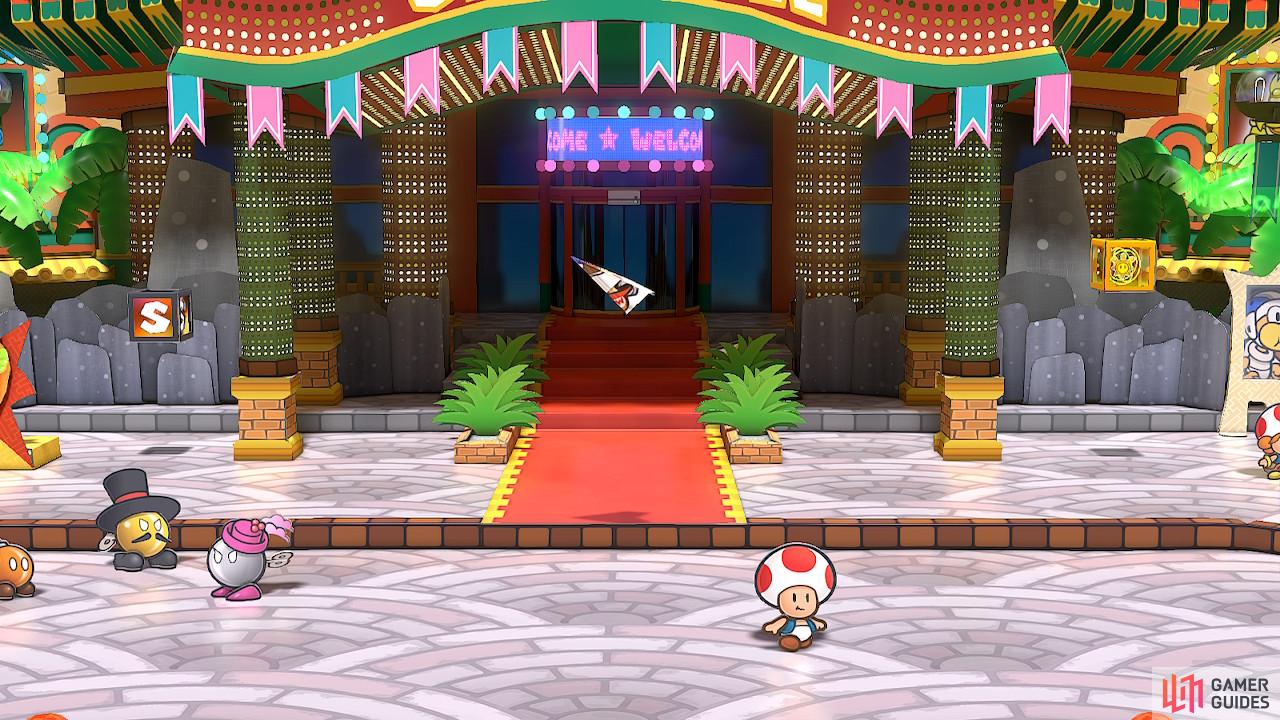
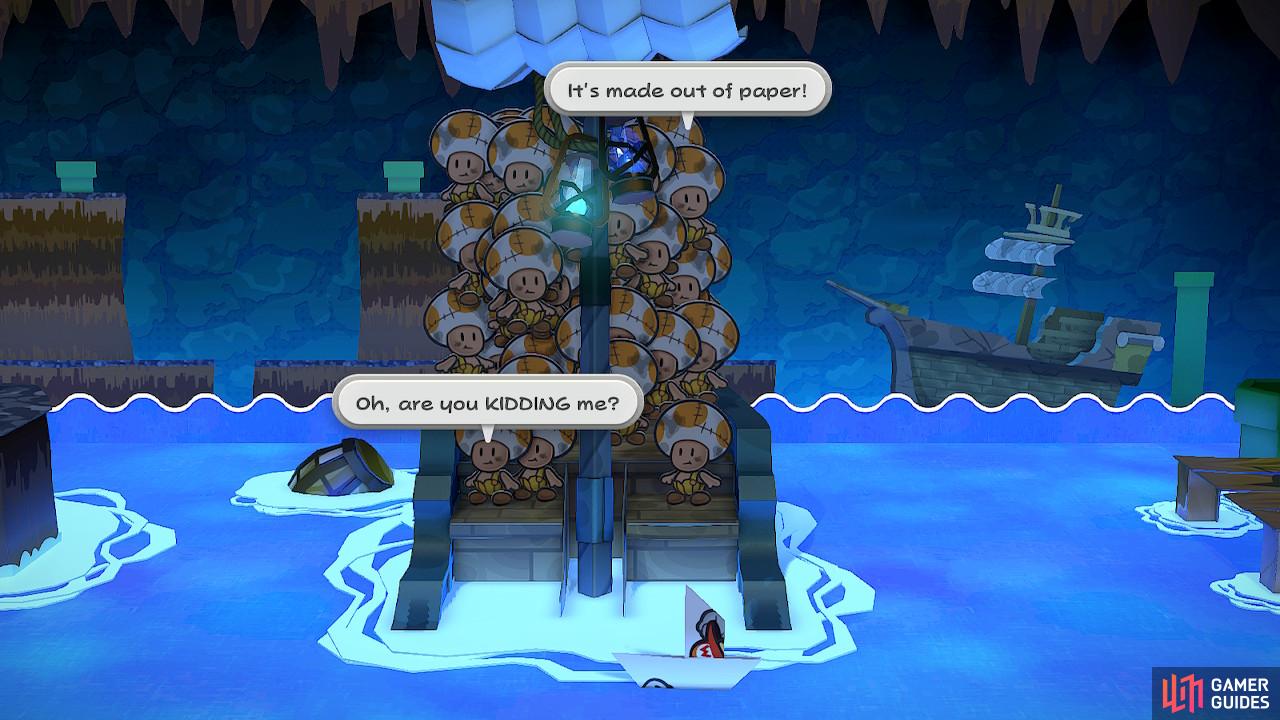
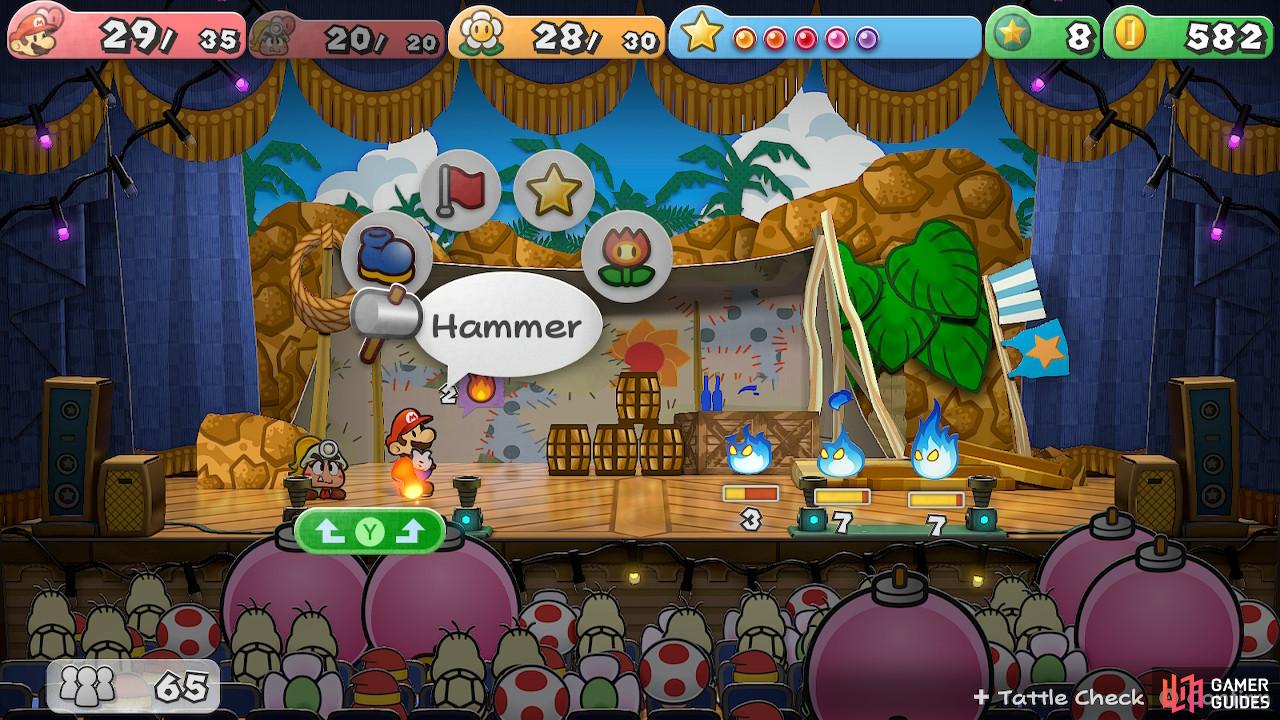
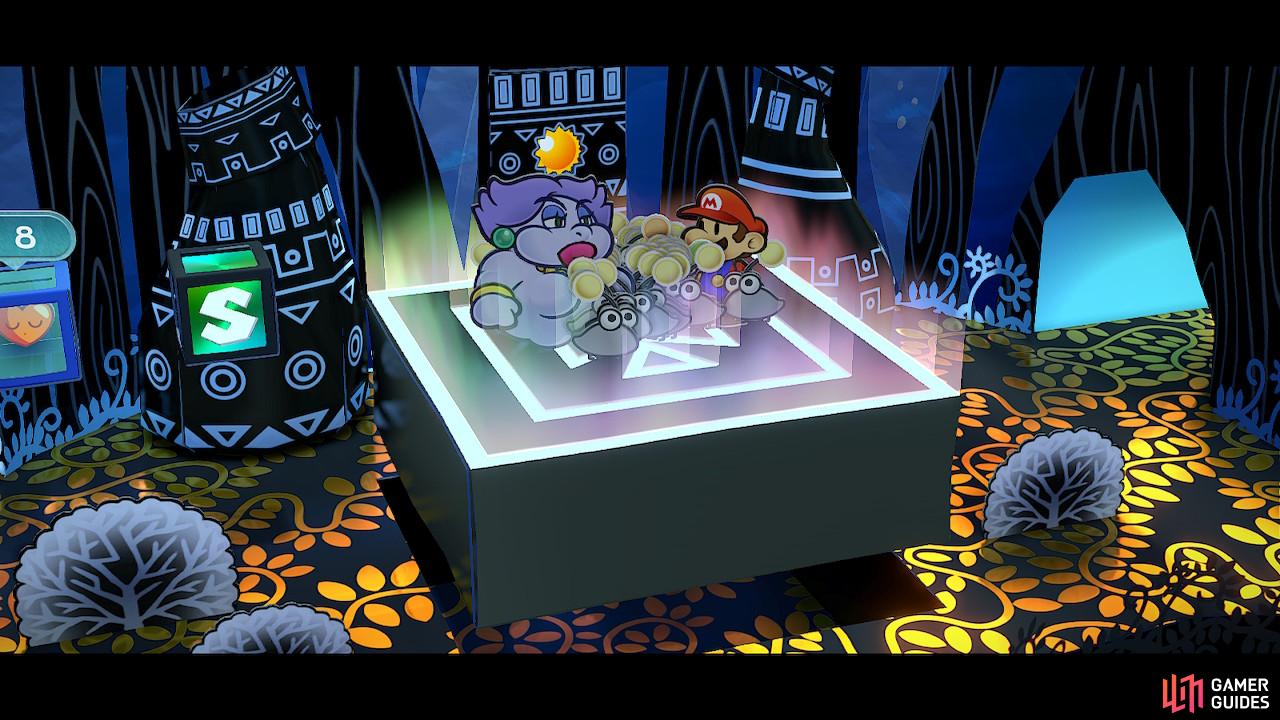
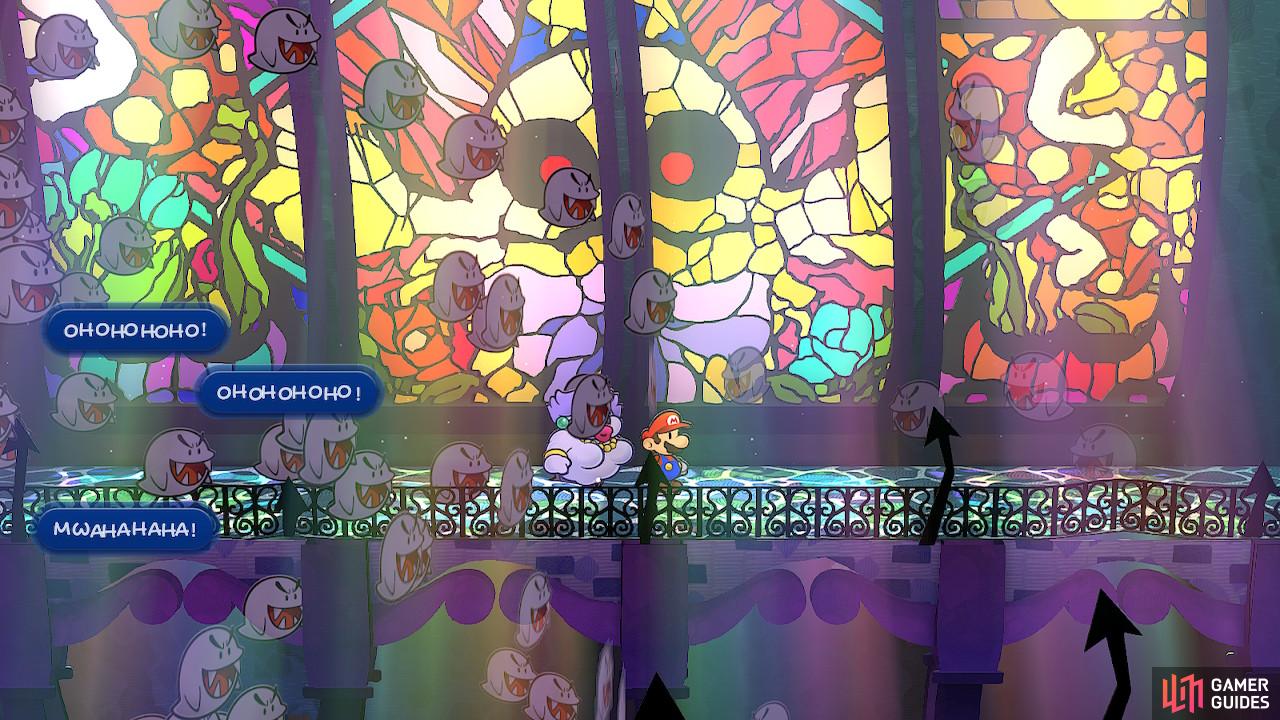
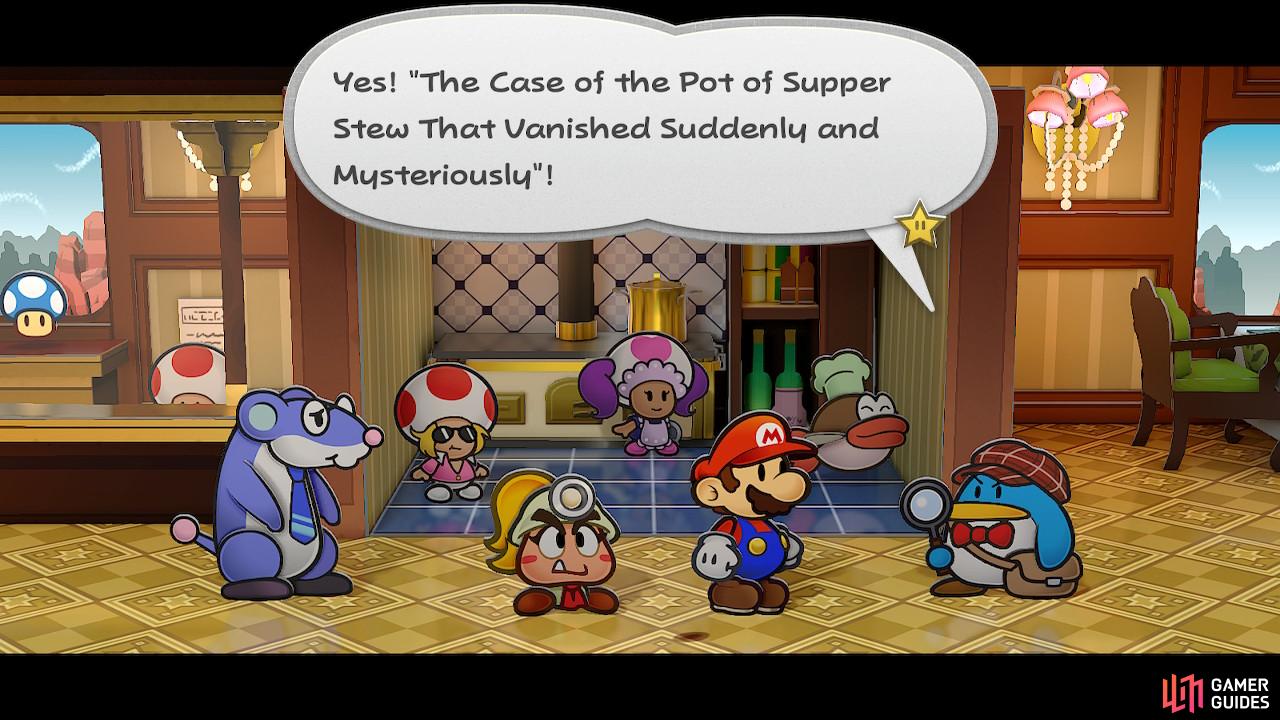




Got it. Now just need to find the time to play it.
I've never played any of the 'classic' paper mario titles. Might pick this up in a few months.
How is it compared to Origami King? I loved it but ended up getting VERY bored midway through.
It's good food for the soul.
Another stellar write up Moyse. I never played this one so I’m excited to do it eventually. Always glad to see your reviews!
Thanks, Pat. It's a great game even for first timers, timeless, really.